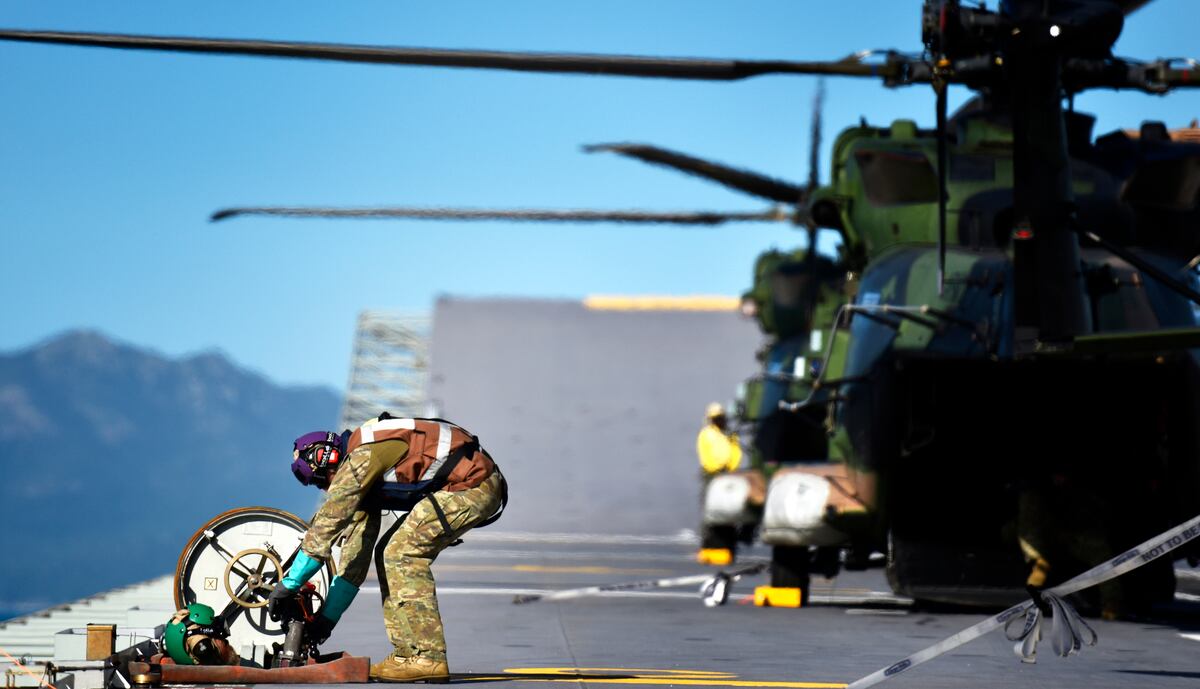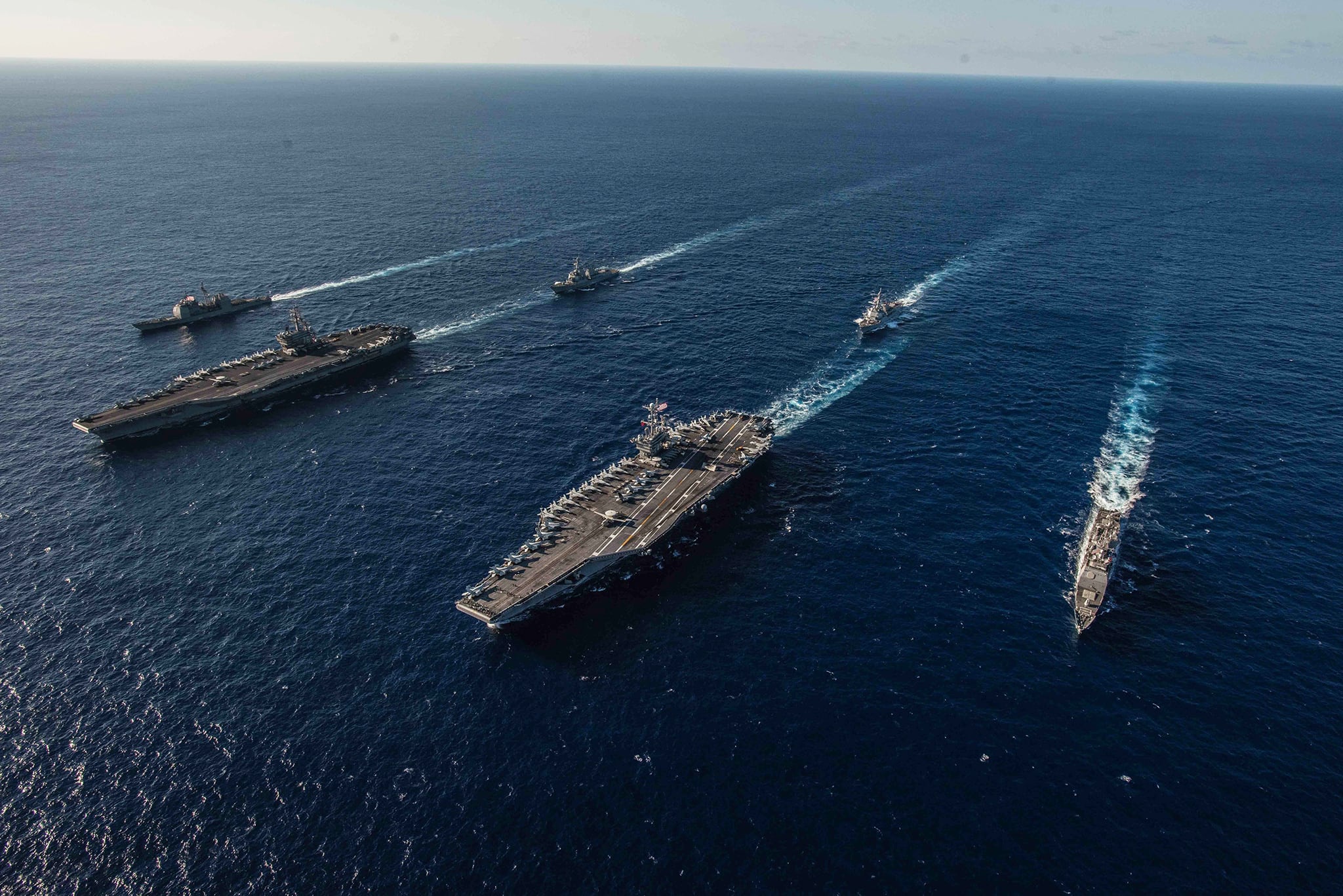SINGAPORE — U.S. Acting Defense Secretary Patrick Shanahan said he will call out China in a speech Saturday over its militarization of man-made islands in the South China Sea and broader use of coercion to advance its national interests.
He said his broader message to the Shangri-La Dialogue security conference will emphasize what the U.S. has done to expand its commitment to the Indo-Pacific region, against the backdrop of China's growing influence and massive military buildup.
Speaking to reporters just before he stepped into a meeting Friday with Chinese Defense Minister Wei Fenghe, Shanahan said he wants to foster a better military relationship with Beijing, but can’t ignore the communist giant’s military development on the man-made outposts.
“They argue that it’s defensive. It looks like it’s a bit overkill,” said Shanahan. “Surface-to-air missiles, long runways, I mean, seems excessive.”
RELATED

His remarks underscore America’s frayed relations with China, as the Trump administration wages a trade war with Beijing, imposes sanctions on Chinese tech giant Huawei and approves a weapons sale to Taiwan, the self-ruled island the Communist mainland claims as its own territory.
And they reflect America’s new national defense strategy that declared great power competition with China and Russia as the nation’s top priorities.
Shanahan's speech on Saturday — his first major address on the international stage — will set the tone for U.S. military cooperation and influence in the Indo-Pacific.
And listening closely will be nervous allies and partners in the region who are worried about the economic impact of the U.S.-China trade dispute and the political blowback of America’s complaints about Beijing’s rapid progress in hypersonic weapons, nuclear technology and space launches.
He also will likely face fierce questions from Chinese leaders in the audience, as many U.S. defense chiefs have seen during this annual forum. On Friday, Chinese defense ministry spokesman Wu Qian was both conciliatory and challenging.
Speaking to reporters after Wei's meeting with Shanahan, Wu noted that the U.S. has recently "had a series of negative words and deeds" on Taiwan issues.
"On the issue of safeguarding national sovereignty and territorial integrity, the U.S. should not underestimate the determination of the Chinese military, will or ability," he said.
But he also said Shanahan and Wei found room for agreement on the need for denuclearization of the Korean peninsula and efforts to improve communication between the U.S. and China.
In a statement after the meeting, Army Lt. Col. Joe Buccino, a spokesman for Shanahan, said the 20-minute session was "constructive and productive." He said the two men discussed "ways to build military-to-military relations that reduce the risk of misunderstanding and miscalculation between our nations."
RELATED

For years, American defense secretaries have used the Shangri-La conference’s podium to condemn China for its militarization of outposts in contested areas of the South China Sea and for conducting cyber espionage against U.S. technology programs. But they have balanced their criticism with calls for cooperation, stability and a rules-based order in the region.
Shanahan told reporters Friday that the U.S. needs to do a better job describing its level of commitment to the region, including military exercises, training and other activities.
"I do think we have to up our game on talking about interactions," he said, adding that the U.S. will have a larger presence in the region for various military exercises. "Our responsibility is to show them what we're actually doing."
Associated Press writer Annabelle Liang contributed to this report.




